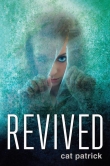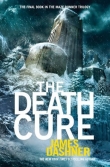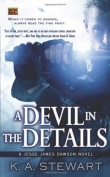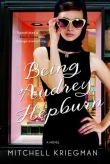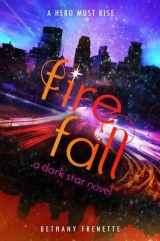
Текст книги "Fire Fall"
Автор книги: Bethany Frenette
Жанр:
Классическое фэнтези
сообщить о нарушении
Текущая страница: 15 (всего у книги 16 страниц)

Gideon was laid to rest on a sunny afternoon, beneath a sky so blue and clear it hurt to look at. He would have liked that, I thought; he wouldn’t have wanted rain.
His official cause of death had been heart failure. Mom and Leon had taken me from Gideon before his body had been found, so that there needn’t be explanations—but I wished there were some explanation I could offer. At the service, I sat on the pew with my own hands folded in my lap, listening to voices that didn’t connect. I felt distant, outside of myself. I could only think how strange it was to be there, in that big room that smelled of flowers and polished wood, noticing little details and not being able to point them out to him. I’d found myself searching the room, scanning faces. Remembering, finally, that he was there, at the front of the room. The dark wooden casket.
At his wake the night before, his casket had been open. His body had looked so cold, not like Gideon at all, but a statue carved in his image. I’d stood there a long time, trying to find some trace of him. Then I’d slipped an envelope in beside him, next to the pillow that cushioned his head. Within it, I’d folded the piece of paper with his name on it. Gideon David Belmonte. One soul.
“I kept this safe,” I told him. “But you should probably take it with you.”
Tink stood beside me at the cemetery, crying silently. I wasn’t crying. I hadn’t cried since the second I’d felt him leave. If I started crying now, I doubted I’d ever be able to stop.
When the casket was lowered, I looked at the open ground that surrounded it, the neatly tended grass. He had died human, I thought. The Beneath hadn’t been able to claim him. He belonged to the earth now, to the soil and everything that was bright and growing.
I spent the following days in a numb fog, walking and speaking, eating when I was reminded to. My sleep was dark and dreamless. My Knowing seemed to have been shut off. For a time I sensed nothing from anyone, and then when I did it was only noise on the periphery, like static or the distant buzzing of bees. I wondered, vaguely, if that should alarm me, that maybe the power was gone for good, that my frequencies had been permanently disconnected and all my perceptions would remain just out of hearing; but I couldn’t work up the effort to care.
Leon did what he could to comfort me. In spite of who Gideon had been, in spite of what he’d done—he knew that Gideon had been important to me. At night he’d leave his apartment and come lie beside me as I fell asleep, not kissing or touching, just there. He was usually gone by the time I awoke, but sometimes I’d open my eyes to find his head on the pillow near me, his breathing even. Then I’d take his hand and feel his fingers curl around mine, and just stay, watching him sleep.
Tink had officially joined the Guardians—who were once again being led by Mr. Alvarez—though she would still be in training with Camille. “I figure, since I survived literal hell on earth, a few Harrowers shouldn’t scare me,” she told me one night, sitting beside me on my porch steps while the thick heat rose around us, July steadily slipping into August. Above us, the stars were blinking through the glow of the city, and not a single one was red.
“We never did come up with a costume for you,” I said, smiling faintly.
“I don’t need a costume.”
“You could borrow one of Mom’s hoodies.”
“Did you miss the part where I just said I don’t need a costume?”
“If you say so.”
She smiled back at me—then bit her lip, looking down at her feet. “It’s going to be really weird, going back to school.”
Without Gideon, she meant. I’d been trying not to think about that. I just nodded, resting my arms on my knees, and watched the insects gather around the porch light. School was a month away, and I was measuring time in days. Seven days since the warm afternoon at the cemetery, since Gideon had been lowered into the earth in that bright casket covered in roses.
Eight.
Twelve.
Then, two weeks after Gideon’s funeral, Mom told me we had a visit to make. If I wanted to.
My father had flown in that morning.
“If you’re not ready, if you want to wait, we’ll wait,” she said.
We were in the kitchen, where the early sunlight crisscrossed the table. I didn’t respond at first. Before, I wouldn’t have hesitated. I’d wanted to know my father, even when I’d known it wasn’t possible—that the person he’d been was locked away, and whatever emotions he had were unable to reach the surface. But now he was awake and unsealed, and I felt like I was the sleepwalker.
“How long is he staying?” I asked.
“A few weeks, for now. He’ll be taking some time to figure things out.”
According to Esther, I assumed; I knew Mom hadn’t spoken to my father yet, either. Esther was continuing her efforts to get Mom to succeed her as leader of the Kin. The decision to evacuate the Kin had saved lives, Esther claimed—and when Mom had replied that anyone would’ve made the decision, Esther just said the point was not what anyone would have done, but what Mom actually did.
I glanced up at Mom. “You’re not going to dump Mickey, are you?”
She snorted, and then set about eating her own pancakes until she saw that I was frowning. “Oh, that was a serious question?” She sighed, stretching backward in her chair. It took a moment before she began speaking. “I’ll always love Adrian. I told you that. But I’m a different person than I was back then. And even unsealed, so is Adrian. Mickey is the man I want to be with. That hasn’t changed.”
“But you’re going to go see him, too, right?”
“When you’re ready.”
I nodded. “Okay.”
Three days later, we met my father in the St. Croix house. Esther had greeted us at the door and walked with us up the stairs, reminding us that my father was still adjusting, and the process would be ongoing for some time yet. But she was clearly thrilled. She looked happier—and healthier—than I’d ever seen her, and before she turned to let us enter the room, she actually hugged me.
In the study, my father was standing near a bookshelf. Physically, he appeared much the same as the last time I’d seen him. He wore a charcoal business suit, and his curly brown hair was still unmarked by gray. When he turned to face us, I could see the gold of his eyes, and the bend where he’d once broken his nose. But his face was no longer expressionless, his gaze no longer blank. He looked nervous. He was frowning a little, and he kept moving his hands. He stuck them in his pockets and then withdrew them. The smile he gave us wavered slightly. He didn’t speak.
My mother entered the room first. She didn’t hesitate. She just strode right up to him.
“Lucy,” he said.
She pulled him into her arms, and then stood on her tiptoes and kissed his cheek. She was crying, but she was smiling through her tears. “I’ve missed you, kid,” she told him.
I hung back, suddenly shy, now that it was real, now that it was really him.
But it was too late. If I were going to flee, I should’ve done it earlier—before Mom and I had gotten into the car that morning, before we’d arrived at the house and walked up those long flights of stairs. He’d already seen me.
I stepped into the room slowly, concentrating on the sound of my footsteps, keeping my gaze on the room around me. I drew in a deep breath and then lifted my gaze to my father. He was looking back down at me.
Knowing came to me then. Vibrant and shining, not the static I’d been sensing—everything open and clear. I could see through those long years he’d spent sleeping, to the laughing boy he’d been. That boy was still there, though he’d long since grown into this somber, sad-eyed man. He lingered at the edge of my father’s memories, in stray impressions I caught now—lying in the grass as a thunderstorm rolled overhead, watching the sky spark and crash; grinning beneath the sunlight, waving to someone beyond my view. And there was the flicker of something else. Something quiet, understated. The sense that while I was Knowing him, he was Knowing me, too. That was his gift, as well, I recalled. The Nav cards Esther had given me had once belonged to him. Inverted Crescent. The card we shared.
He didn’t seem to know what to say. But that was all right; I did.
I smiled. I was crying, I realized. For the first time since Gideon had died. Not hard, but I could feel tears sliding down my cheeks. “It’s really nice to meet you,” I said. “I’ve been waiting a long time.”
I found Iris in her bedroom, sitting near the window, her fingers pressed up against the screen. The window was open, letting in the breeze. The wind stirred against her silver hair, making wisps of it graze the hollow of her throat, where the triple knot still hung. Her face was tilted, her eyes closed. She didn’t move when I stepped into the room.
I remembered the first time I’d been here. Iris and I had come with my Nav cards to search for the Remnant. We’d sat on the floor, and for the space of a second I’d had a glimpse of that image she’d tried so hard to hide: the night Patrick Tigue had found her sitting in the rain and given her his hand.
I felt a flicker of pity. Iris and I had never been friends, exactly. But we’d been family, for a time.
“Iris,” I said, taking another step forward.
She turned from the window. “What do you want?”
I wasn’t certain. I watched her, the way she toyed idly with the ring on her thumb, noting the thin, fading line of the wound on her neck. Her fingernails were bitten short and ragged. I thought of the girl she’d once been—the inky shine of her hair, the grief that had weighted her. I thought of her standing before me on Harlow Tower, clutching a knife.
“I didn’t kill Gideon,” I said finally, struggling with the words. “I wanted you to know that.”
“Good for you. And you came here just to tell me I was wrong? He’s still dead.”
That flicker of pity vanished instantly. “No. I came to find out what you’re doing.”
She cocked her head toward the window. “What does it look like? Enjoying my imprisonment, while it lasts. I’ve got a view of the yard and Grandmother’s disapproval. What more could I want?”
“Elspeth says you turned yourself in.”
“I didn’t run away, she meant.”
“And you’re really just going to sit here and await judgment? I don’t believe that.”
She ran her fingers through her hair. Silver caught the light from outside. “You really think I care what happens to me?”
“I don’t think you care about anything,” I replied. “I definitely don’t think you care about the people you killed. You’d have to know the meaning of the word remorse, and that’s not in your vocabulary, is it?”
“I told you once—you don’t know anything.” For a second she sneered at me, and then her face relaxed. She looked calm now, and just a little sad, almost like she had before she’d disappeared Beneath. “You want the truth? I’m here for Patrick, what I did to him. He only wanted to help me. And I ruined him. I’ll face judgment for that. At least if they seal my powers, I’ll stop hearing it.”
“The Beneath?” I guessed.
“It’s asleep again. But it’s still alive. Whispering. Taunting.”
“What does it say?”
A strange smile curved her lips. “It says that I’m going to die.”
I repressed a shudder, hearing the echo of its voice in my own ears. “So, the usual.”
She shrugged. “Maybe it’s right, this time. Who can say?” She turned once more, her eyes burning gold. St. Croix eyes, not the milk-white of Harrowers her eyes sometimes had. “Audrey—everything that happened. I would change it, if I could.”
Changing things. That’s what she’d wanted all along. To rewrite the past. To bring back what she’d lost.
Well, now at least, I knew what that felt like.
It was as close as she came to an apology, I supposed.
“Good-bye, Iris,” I said—as close as I could come to forgiveness.

In the pearly light that swelled just before dawn, I went walking the way Gram and I always used to. I was careful not to take the road toward Gideon’s house. I headed the other direction, down blocks where long stretches of grass still gleamed wetly with dew, and morning glories twisted their way up garden trellises, showing in violet and indigo. The morning air was cool, and beyond me the skyline was etched with light, glinting where the sunrise touched it, so it seemed the space between the buildings was bright with fire. I could see the Circle, I thought, if I looked closely. Instead I kept my gaze on the street around me, watching the cars that rolled out of the driveways to begin the morning commute.
A shadow stepped out in front of me.
I came to a halt.
Shane stood before me, his hands in his pockets, a wry smile on his lips. His blond hair caught the light, once again carefully rumpled instead of unkempt. His clothing was clean—no trace of blood on the gray jeans he wore, no rips in his pale blue T-shirt. I knew it was him by the lazy grace in his posture and the rueful look in his eyes, but it was more what I didn’t sense that revealed him. That cloying scent of decay didn’t linger in the air, and the cold malevolence of the Beneath was gone.
But I hesitated. I retreated a step, watching him warily, wondering what he was doing there. I had no idea what he was now—if the Beneath, awake inside him, had altered him somehow. If the beast was still there, lurking, ready to bare its teeth.
He saw me inch backward and lifted one hand in front of him. “No need to fret, angel. My ill-tempered tenant is evicted once more, all safely slumbering in its hellish bed. I’ve you to thank for that, I hear.”
I shook my head, swallowing thickly. “No. You have Gideon to thank. You were wrong. He was my friend. Always.”
Shane’s voice was gentle. “I’m sorry, pet.”
I didn’t want to talk about Gideon. Whenever I did, something inside me seized up, and I had to wait for it to ease before I could speak again. I glanced away, to where the sunrise lit the maple leaves in the yard nearby, then back to Shane. “What about you? Are you okay?”
He shrugged. “Why not? Your mum obligingly didn’t dispatch me, and I am once again free to roam where I will. I would consider myself the most fortunate of men”—he smiled again—“were I a man, that is.”
For the first time, I got a sense from Shane. A gleam of Knowing, faintly echoing below his words. The hint of regret. He was lying, I thought. He was more troubled than he wanted to admit. But I didn’t press. I just nodded and said, “Is that why you’re here? You wanted to thank me?”
Now he hesitated. “I’m leaving this Circle. I meant to before, of course, and now I fear impulse has become imperative. Your Kin will not want me here. But I have a parting gift.”
“What sort of gift?” I asked, eyeing him dubiously. He’d removed his hands from his pockets, and they were empty.
“Not the sort you can return if you don’t care for the fit.” When I continued to look at him, he said: “Something I’ve Seen.”
I wasn’t certain I wanted to hear it. “I think I’m done with doomsday visions.”
“You’ll like this one. But I want you to See it yourself.”
“You want me to share your power?”
“Momentarily, rest assured.”
I considered it a long time. After my experience sharing Susannah’s powers, I was reluctant to try it on another Harrower, neutral or not—and particularly one so recently body-snatched by the Beneath.
Shane’s smile faltered. He returned his hands to his pockets, then shrugged again. “You needn’t accept. It’s an offer, not an obligation.”
“I’ll accept,” I said. I stepped toward him, cautiously placing my hand on his shoulder. Through the fabric of his shirt, I could feel the chill of his skin, and for a second I almost drew back. Then I took a breath, and slowly began to amplify. The bond was weak—in part because of my own hesitancy—but I sensed it build between us. I felt the dark of the Beneath in the link that formed, the icy touch of its hostility, but it was much fainter than it had been with Susannah.
“Close your eyes,” Shane instructed.
When I did, images played out before me.
The Circle, bright and burning under a black, starless sky. The pulse of its light, vibrant and warm. And then the vision moved outward, and I was staring at it from above, at its aura waving out across the city. It pulled back again, and there was another Circle gleaming to the west, then another across the ocean, then others shining within the slow spin of the Earth. Around them, I could hear the whispers of the Beneath, harsh urgings and hissings that spoke of death. But then, gradually, the whispers began to fade. The echoes went quiet. There was silence, and nothing but the glow of the Circles spreading outward.
The vision faded. I pulled back my hand, breaking the Amplification, and looked up at Shane in confusion.
“What was it?” I asked.
“The other future. Far-flung yet, I’m afraid. I doubt any of us should live to greet it. But potential. Potential that the Beneath, for all its wide reach, could never quite see. It saw you open the Circle, but never looked beyond.”
“I don’t understand.”
“Peace, pet. The Beneath calmed and quiet for all eternity. No more monsters to trouble your sleep. That’s the possibility you and your friend bought for your Kin.”
That was what Valerie’s other vision had been, I thought. Not the end of the Kin, then. The opposite. I looked back up at Shane, where in the warmth of his green eyes, I could still see the shadow of the Beneath. “What would that mean for Harrowers?”
“Who can say? But I can tell you I wouldn’t mourn the loss of the Beneath, provided I survived the leaving.”
He turned, facing the skyline, where the sun was still rising over the buildings, setting the horizon aflame. A low sigh escaped him.
“Where will you go?” I asked.
“Somewhere a touch more temperate, I believe.” He didn’t look back at me, but he lifted a hand to wave as he began to walk away. “Good-bye, angel.”
“Good-bye,” I said. “And thanks.”
That afternoon, I stepped into my closet and found the shoebox where I’d hidden my Nav cards. I took it with both hands and carried it over to my bed, where I set it in front of me, hesitating a moment before I opened the lid. Slowly, I removed the other objects tucked inside—postcards from trips my family had taken, a few folded notes from Tink. Then I pulled out my Nav cards and spread them out across the bedspread. Both decks, my father’s and Gram’s. I looked at the cards one by one, tracing the designs with my finger.
Card one, Compass, that always represented my mother.
The Triple Knot, the mark of the Astral Circle.
Gideon’s card, The Prisoner.
The blank card, where I’d seen Verrick’s face.
I thought of Gram laying her hands over mine, helping me Know. She’d explained how to focus as I shuffled, how to use the cards to see around edges, into the closed, quiet spaces where memories slept.
I called Leon and asked him to come over.
I’d been thinking about gifts. About the vision Shane had given me. And about the night I’d gone to see Esther, and she had shown me a sliver of my own past; how she had helped me move backward into my mother’s history, and I had seen my father’s face. Moving past Knowing, into echo and reverie, Esther had called it. She had allowed me to see my parents. Now, I was going to try to show Leon his.
I’d never done a reading for Leon before; I’d never really been able to read him. Now, after teleporting into my bedroom, he looked nervous as he watched me shuffle.
“Are you afraid I’m going to unearth some shocking secret?” I asked. “I already know you sing Christmas carols in the shower.”
He gave me a sheepish look. “Does Nav stand for something? You’ve never mentioned it.”
“Navigation,” I said. “The cards are to help guide my Knowing.”
I laid down the first card. Card fifty-one. Inverted Crescent. My card. I let out a breath; with how long it had been since I’d tried a reading, and my Knowing so erratic, I hadn’t been entirely certain it would work. I set the card out in front of me. “This is me,” I said.
The second card I dealt was card two. Crescent.
“That’s you,” I said. My lips curved upward. “I should’ve guessed.”
He lifted an eyebrow at me. “So…I’m your inversion. Or you’re mine. What does that mean?”
But that wasn’t it. A glow of light in the inky night sky, I thought; not a star, exactly, but the reflection of one. A beacon. The flame that guides you home.
I didn’t say that. “It means opposites attract, obviously,” I told him. “Now let me focus.”
As I laid out the cards, I concentrated on Leon. I looked at him—the dark blue of his eyes, the slant of his jaw. When he’d first arrived, I’d managed to pull his tie crooked without him noticing, but he’d since moved it back into place. There was a small cut, healing into a scar, just above his right eyebrow. His expression was just a little uncertain.
Then I looked past him, through him, into the open, uncharted space of Knowing.
There was a young woman there. She didn’t speak, but I saw her—the slender lines of her hands, the slightly pointed tip of her nose. She was tall and slim, with thick red hair, a dusting of freckles across her face. A young man stood beside her, tilting his head as he laughed. There were other images, too, moments that blended into one another: a window streaked with rain, the rise of fog on a city street, the woman cupping her hands to call a name; the lap of water against a sailboat, a long summer day wreathed in light.
The impressions shifted, changed, but the figures remained the same. The small boy who waited at the door was there as well, and the man who collected shells in his big hands—but I could look further still. I could see the slide of evening along the open sky, and Leon’s parents walking slowly through the grass, and a dark-haired toddler laughing between them. Memory woven within memory. Secrets to be shared.
“Why are you smiling?” Leon asked.
I took his hand, holding it in my own and feeling the warmth of his skin as I laid out the rest of the cards. “Close your eyes,” I said. “Let me tell you what I see.”



